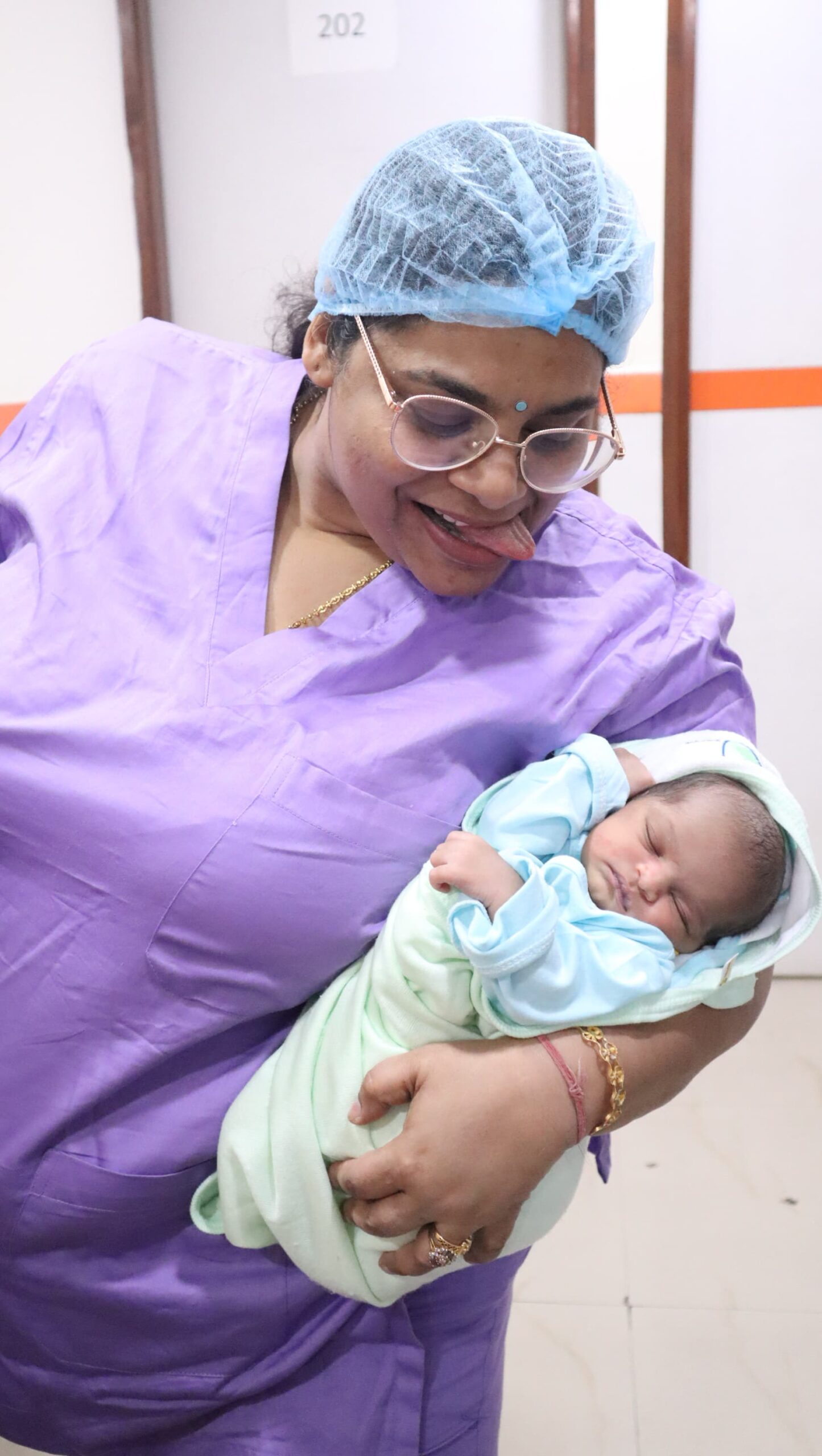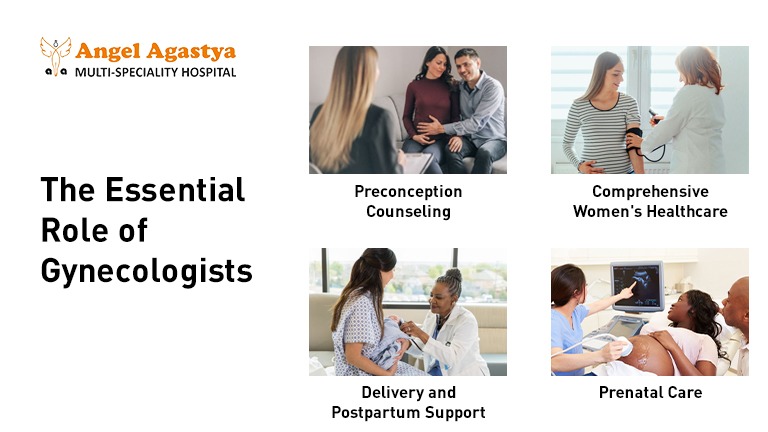The “Gynecologist A First Mother” Myth: Unveiling the Truth
Let’s face it, the saying “gynecologist – the baby’s first mother” is pretty funny. It paints a picture of a dedicated doctor hovering over the crib, dispensing endless bottles and changing countless diapers. While it might bring a smile, the reality is quite different.

the bond between a woman and her gynecologist can be incredibly special. Throughout pregnancy, these doctors become a source of knowledge, a listening ear, and a champion for a woman’s health and well-being. This can lead to a sense of connection and support, making the “first mother” moniker, although factually inaccurate, a sweet way to acknowledge their significant role.
The Essential Role of A Gynecologist
So, if gynecologists aren’t the “first mothers,” what exactly do they do? These healthcare professionals wear many hats and provide a wide range of services throughout a woman’s life:

- Comprehensive Women’s Healthcare: From routine checkups to diagnosis and treatment of reproductive health issues, they offer a safe space for women to discuss their concerns and receive essential healthcare.
- Preconception Counseling: Thinking about starting a family? They can provide valuable guidance on preconception health, optimizing your body for a healthy pregnancy.
- Prenatal Care: Throughout pregnancy, gynecologists or obstetricians (specialists in childbirth) provide crucial prenatal care, monitoring mom and baby’s health with regular checkups, screenings, and tests.
- Delivery and Postpartum Support: While not all gynecologists deliver babies, they may work alongside obstetricians during delivery and offer postpartum support for mothers, addressing physical and emotional needs after childbirth.
Beyond the Delivery Room: A Supportive Partnership
The doctor-patient relationship with a gynecologist goes beyond just medical expertise. This section will explore the emotional connection that can blossom between women and their gynecologists:

- A Safe Space: Their office provides a safe and trusting environment where women can discuss intimate health concerns without judgment. This open communication is crucial for early detection and treatment of potential issues and overall well-being.
- Empowerment and Advocacy: They empower women to make informed decisions about their reproductive health. They provide information, answer questions, and advocate for their needs throughout pregnancy, ensuring their voices are heard and respected.
- A Listening Ear: Beyond medical advice, they offer a supportive ear. They understand the emotional rollercoaster of pregnancy and patiently address anxieties, offering reassurance and guidance throughout this life-changing journey.
Honoring All Caregivers
While gynecologists play a vital role in pregnancy, there are some other key players in the pregnancy support system:

- Midwives: These skilled healthcare professionals provide specialized care during pregnancy, labor, and delivery, offering a more holistic and natural approach to childbirth.
- Nurses: They are the backbone of the healthcare team, providing invaluable support and care during pregnancy, labor, delivery, and the postpartum period.
- Doulas: Doulas provide non-medical emotional and physical support before, during, and after childbirth. They can offer comfort measures, massage, and help create a calm and positive birthing environment.
Summary:
Ever been to a baby shower and chuckled at a card playfully calling the gynecologist the “first mother”? While it’s a funny way to acknowledge their significant role, there’s a heartwarming story behind the misconception. This blog dives into the fascinating world of obstetrics and gynecology, separating fact from fiction. We’ll explore the crucial role gynecologists play in a woman’s healthcare journey, from preconception to childbirth, and celebrate the incredible bond that often forms between mothers and their doctors. Get ready for a rollercoaster of emotions – laughter, appreciation, and a newfound respect for these dedicated medical professionals!
FAQs:
What are the differences between obstetrics and gynecology?
Obstetrics focuses specifically on pregnancy, labor, and delivery, while gynecology encompasses a broader range of women’s reproductive health, including contraception, menstrual health, and diagnosis/treatment of reproductive disorders. Think of obstetrics as dealing with pregnancy itself, and gynecology as dealing with a woman’s entire reproductive system throughout her life.
When should I start seeing a gynecologist if I’m planning to get pregnant?
Ideally, schedule a preconception appointment with your gynecologist before actively trying to conceive. This allows for a comprehensive checkup, discussion of any health concerns, and optimization of your health for a healthy pregnancy.
What are some essential questions to ask my gynecologist during prenatal care?
Don’t hesitate to ask questions! Some key areas include:
• Your diet and exercise routine during pregnancy.
• Prenatal testing options and their implications.
• Pain management options during labor.
• What to expect postpartum and how to care for yourself and your newborn.
What tests and procedures are typically done during prenatal care visits?
Prenatal care involves regular checkups to monitor your health and the baby’s development. These might include:
• Weight and blood pressure checks.
• Urine tests to screen for potential issues like gestational diabetes.
• Blood tests to assess your health and the baby’s development.
• Ultrasounds to visualize the baby’s growth and well-being.
Can a gynecologist deliver my baby, or do I need an obstetrician?
While some gynecologists deliver babies, not all do. They might choose to focus solely on gynecological care. If you’re interested in a vaginal delivery with minimal interventions, you might discuss a birth plan with your gynecologist. For high-risk pregnancies or those requiring a C-section, an obstetrician might be recommended.
What kind of support can a gynecologist offer after childbirth?
Postpartum support from your gynecologist can include:
• Monitoring your physical recovery from childbirth.
• Addressing any postpartum concerns like pain, bleeding, or mood swings.
• Discussing birth control options and family planning.
• Providing guidance on breastfeeding or infant care.
What are some signs of a healthy pregnancy that a gynecologist will monitor?
Your gynecologist will track various signs of a healthy pregnancy, including:
• Steady weight gain.
• A regular heartbeat on ultrasound.
• Normal fetal movement patterns as the pregnancy progresses.
• Changes in your uterus size.
• Your blood pressure and blood sugar levels.
What are some common pregnancy discomforts, and how can a gynecologist help?
Pregnancy brings a variety of discomforts like morning sickness, back pain, and fatigue. Your gynecologist can offer solutions like:
• Dietary changes to manage nausea.
• Supplements to address nutrient deficiencies.
• Beyond the Stretch: A Holistic Approach to Back Pain Relief.
• Sleep hygiene tips to combat fatigue.
How can I find a qualified gynecologist who is a good fit for me?
• Ask your primary care physician for recommendations.
• Seek referrals from friends or family members who have had positive experiences with gynecologists.
• Check online directories of healthcare providers in your area.
• Consider factors like the doctor’s experience, communication style, and bedside manner, and whether they deliver babies if that’s important to you.
What are some tips for building a strong relationship with your gynecologist?
• Be open and honest during your appointments.
• Ask questions and express your concerns.
• Feel comfortable discussing any intimate health issues.
• Take notes during appointments to remember key information.
• If you don’t feel comfortable with your current gynecologist, don’t hesitate to find a new one who is a better fit for you.
Please Note: Always consult with a qualified healthcare professional before implementing any of the information provided in this blog. Always consult with a qualified healthcare professional for personalized advice on your specific healthcare needs.


Hi my family member I want to say that this post is awesome nice written and come with approximately all significant infos I would like to peer extra posts like this
thanks